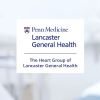What You Should Know About Heart Disease Medication
Heart disease remains one of the leading causes of death worldwide, with millions of people relying on various medications to manage their conditions. As a person living with heart disease or someone supporting a loved one, understanding heart disease medications is crucial. Not only do these medications help manage the condition, but they also play a significant role in preventing complications such as heart attacks and strokes. However, navigating the different types of heart disease medications and their effects can be a challenge. In this article, we will explore the essential aspects of heart disease medications, including what they are, how they work, their benefits, side effects, and the considerations one should keep in mind when using them.

1. Understanding Heart Disease Medications
Heart disease medications fall into various categories, each serving a specific purpose to manage heart-related conditions. These include medications to lower cholesterol, reduce blood pressure, prevent blood clots, and regulate heart rhythm. The types of medications you may be prescribed largely depend on the specific type of heart disease you have and any other underlying conditions you might be dealing with, such as high blood pressure or diabetes.
Atlanta Heart Specialists
atlanta heart specialists
4375 Johns Creek Pkwy #350, Suwanee, GA 30024, USA

2. Common Types of Heart Disease Medications
Heart disease treatments generally include several categories of medications that aim to control different factors contributing to heart problems. Some of the most common medications include:
- Statins: These medications are designed to lower cholesterol levels, reducing the risk of plaque build-up in the arteries.
- Beta-blockers: These drugs help control heart rate and lower blood pressure, making it easier for the heart to pump blood.
- ACE Inhibitors: Angiotensin-converting enzyme (ACE) inhibitors help relax blood vessels, lower blood pressure, and improve heart function.
- Antiplatelets: Drugs like aspirin are used to reduce the likelihood of blood clots forming, thus lowering the risk of heart attacks.
- Diuretics: Often prescribed for those with heart failure, these medications help the body eliminate excess salt and water, reducing fluid buildup and easing heart strain.
3. How Do Heart Disease Medications Work?
Heart disease medications work by targeting different aspects of cardiovascular health. For example, statins work by blocking the enzyme responsible for producing cholesterol, while beta-blockers block adrenaline's effects on the heart, thus slowing heart rate and reducing the heart's workload. ACE inhibitors and diuretics assist in lowering blood pressure, which can ease the strain on the heart.
Additionally, antiplatelet medications like aspirin help prevent blood clots from forming in arteries, which can otherwise lead to blockages and increase the risk of heart attacks. By controlling blood pressure, cholesterol, and blood clot formation, these medications play an essential role in managing heart disease.
4. The Role of Medications in Heart Disease Prevention
In many cases, medications not only help manage existing heart conditions but also serve as a preventive measure. By lowering blood pressure, reducing cholesterol levels, and preventing clot formation, these medications can prevent serious complications like strokes and heart attacks. For individuals with a high risk of heart disease, preventative medications can be a key factor in reducing the likelihood of cardiovascular events.
Preventive medication is particularly important for individuals who have a family history of heart disease or other risk factors, such as smoking, diabetes, or obesity. These medications help reduce the overall burden on the cardiovascular system and minimize long-term damage to heart tissue.
5. Possible Side Effects and Considerations
Like any medication, heart disease medications come with potential side effects. Common side effects of statins, for example, can include muscle pain, digestive issues, and liver damage. Beta-blockers may cause fatigue, dizziness, and cold hands or feet, while ACE inhibitors can lead to a persistent dry cough or elevated potassium levels in the blood.
It is essential for patients to discuss their medication plan with their healthcare provider and report any side effects immediately. In some cases, medication adjustments or changes may be necessary to reduce side effects or improve efficacy. Always follow your healthcare provider’s instructions to ensure safe use of heart disease medications.
6. Lifestyle Considerations When Taking Heart Disease Medication
While medications are vital in managing heart disease, they work best when combined with a heart-healthy lifestyle. This includes eating a balanced diet rich in fruits, vegetables, and whole grains, engaging in regular physical activity, managing stress, and avoiding smoking or excessive alcohol use. Lifestyle changes can enhance the effectiveness of heart disease medications and support overall heart health.
Patients should also regularly monitor their health metrics, such as blood pressure, cholesterol levels, and weight, to ensure that the medication is working effectively. Consulting with a healthcare provider about lifestyle changes can lead to improved outcomes and a better quality of life.
Conclusion: Taking Control of Your Heart Health
Managing heart disease is an ongoing journey, and medications are just one part of the equation. Understanding the role of heart disease medications, how they work, their potential side effects, and the importance of a healthy lifestyle can empower individuals to make informed decisions about their health. By following a comprehensive treatment plan that includes medication, lifestyle changes, and regular check-ups, you can significantly improve your chances of managing heart disease and preventing complications.
If you or someone you love is living with heart disease, consulting with a healthcare provider about the best medication options is essential. Taking action early can significantly improve heart health and overall well-being. Visit [HeartCare Hub] for more information about heart disease prevention and treatment options.





















Deborah Heart and Lung Center
deborah heart and lung center
200 Trenton Rd, Browns Mills, NJ 08015, USA